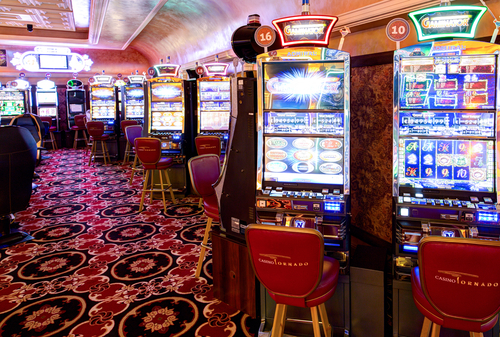
Gambling games have consistently attracted various types of players, delivering not only excitement through chance but also a tailored experience crafted for various player types. Ranging from the strategic minds who succeed through skill and calculation to recreational players who seek entertainment, casinos understand the nuances of their audience and create games that accommodate these differing preferences.
In delving into the world of casino games, we find a diverse array of game types that interest every kind of player. Poker tables with high stakes attract competitive players, while exciting slot machines appeal to those seeking immediate satisfaction. Whether it’s the allure of winning big or simply savoring the social atmosphere, casinos tailor their game offerings to ensure that everyone finds a spot that feels comfortable and engaging. Recognizing how these games are designed for different kinds of players can enhance not only our enjoyment of them but also our approach to choosing which games to play.
Grasping Participant Groups
In the varied world of gaming entertainment, participants can be categorized into separate types based on their incentives and likings. These gamer types range from the casual and social gamers, who enjoy the entertainment value and community connections that gambling provides, to the more analytical and analytical players, who seek to increase their chances and profits. Understanding these different categories is essential for casinos to tailor their games and build engaging settings.
One common category is the group-oriented player, who sees casino games as a form of social interaction and fun rather than a solemn gambling activity. These participants often enjoy games that encourage involvement and camaraderie, such as group-based games. Their emphasis is on the journey rather than the outcome, so vibrant atmospheres and collective moments are what they cherish the most.
On the contrary end of the spectrum, competitive players are inspired by competition and the quest of expertise. They tend to lean toward games that demand tactical planning and strategy, such as strategic card games, where their skills can influence the conclusion. This kind often interacts with the games on a more intense level, utilizing expertise and approaches to gain an edge. Understanding these motivations allows casinos to create settings and game selections that address to each participant’s individual preferences.
Strategies for Game Design
Casino games are designed with varied player types in mind, employing various strategies to draw in and engage them. For casual players, the focus is on simplicity and clarity. Games like slot machines are often aesthetically pleasing with simple mechanics. This allows players to experience the gameplay without a difficult learning curve, fostering an welcoming atmosphere. The bright colors, catchy sounds, and themes create a fun environment where players can easily get involved and entertained.
For strategic players who enjoy a deeper level of engagement, games such as poker and blackjack offer complexity and skill-based elements. These games incorporate strategy and tactical choices, appealing to players who excel on competition and want to utilize their mental skills. The design of these games regularly includes complex rules and mechanics that challenge players to refine their skills and create strategies over time, resulting in a rewarding experience for those who enjoy perfecting the game.
Furthermore, social players are considered through games that emphasize interaction and community. This comprises live dealer games and multiplayer games, which cultivate a sense of community among players. The design of these games typically includes chat features and social elements, allowing players to connect and exchange insights. By building an environment where participation is promoted, casinos can effectively involve community players, making the gaming experience more enjoyable and memorable.
Enhancing Gamer Engagement
Casino games have progressed notably to offer a significantly entertaining environment for gamers. Game developers focus on immersive visuals, rich sound effects, and novel game mechanics that draw players into the gaming environment. https://78win.gift/ By leveraging tech, such as virtual reality and enhanced reality, betting houses ensure that players feel as if they are part of a exciting environment, enhancing not only the enjoyment of the titles but also the overall experience of being in a betting establishment.
Community engagement is another important element in boosting gamer engagement in gambling titles. 78win đăng nhập Several titles are developed to promote engagement among gamers, whether through multiplayer modes or messaging options. This interactive component appeals to gamers who appreciate connecting with others while competing, promoting a sense of community. In addition, social features can include leaderboards, tournaments, and prizes for team engagement, which capture ambitious participants and inspire them to return for additional.
Lastly, personalization plays a crucial role in tailoring the interaction for diverse gamer demographics. Betting companies and game developers study gamer activities and tastes to present personalized game options and rewards. By understanding the unique preferences of players, gaming establishments can present tailored deals, bonuses, and fresh games that appeal to each participant, thus boosting their complete engagement and loyalty to the gaming venue.
